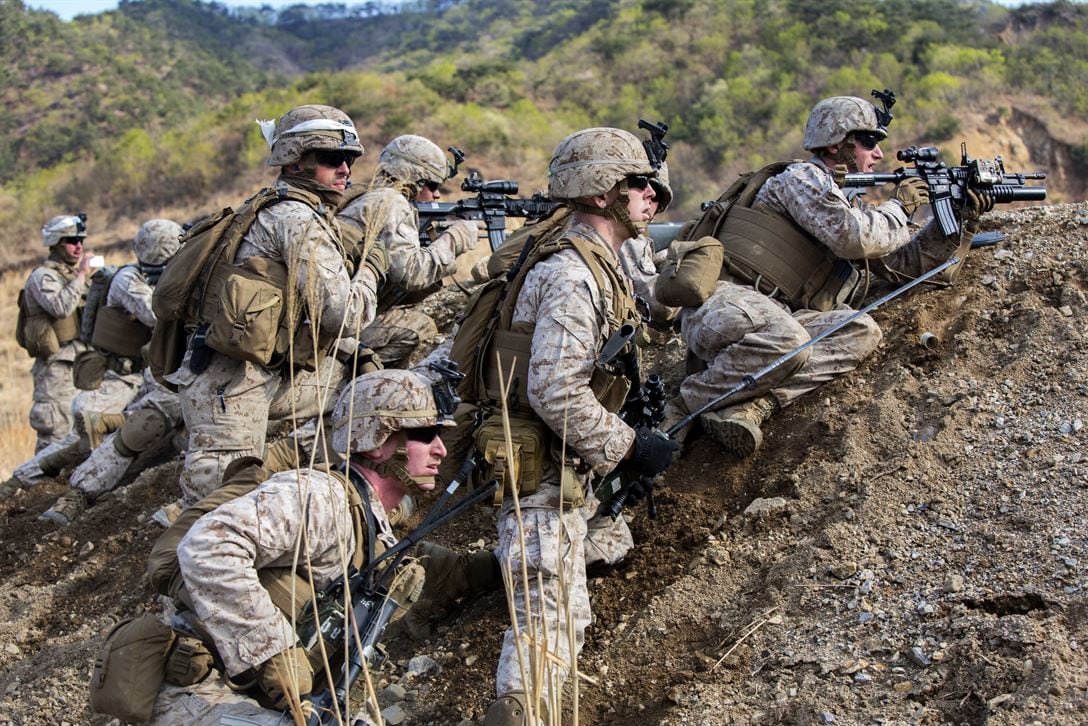 Photo Credit: Department of Defense
Photo Credit: Department of Defense
U.S Troops: The Backbone of Peace and Stability on the Korean Peninsula
As Secretary Pompeo prepares to meet with Kim Jong-un this Sunday to discuss the denuclearization of the Korean Peninsula, it is now more important than ever to underscore the importance of U.S. forces in South Korea. The U.S has kept troops stationed in South Korea since the end of the Korean War, and they play a vital role in bolstering U.S.-ROK security. These forces deter a potential North Korean attack, strengthen the U.S. alliance with South Korea, and provide a counter balance to a rising China. As their presence serves vital national security interests, their full withdrawal should not be included in any nuclear deal with North Korea.
U.S forces in Korea deter a North Korean attack as they provide both the credibility and operational capacity to ensure that North Korea does not view an invasion of South Korea as having a high probability of success. The troops provide credibility to the United States’ commitment to defend South Korea as their physical presence virtually insures that they would be involved in defending South Korea if a conflict were to break out. Additionally, American troops provide the operational capacity needed to deter a North Korean attack, because their advanced weaponry could change the North Korean calculus against an invasion of the South.
The South Korean-U.S. alliance is strengthened by the presence of U.S. troops in the country. The troops serve as a visible reminder of the special relationship that the two nations have. Their importance was underscored by South Korean Foreign Minister Kang Kyung-wha during a press conference with Secretary Pompeo last May:
“Secretary Pompeo and I reaffirmed that the ROK-U.S. alliance, which celebrates its 65th anniversary this year, has long served as the linchpin for peace and stability on the Korean Peninsula and in the region. We also reaffirmed that for the last 65 years, the USFK, the United States Forces in Korea, has played a crucial role for deterrence and peace and stability of the region.”
Finally, U.S. forces in South Korea allow the U.S. to hedge against a rising China. The two air bases that the U.S. maintains in South Korea, Osan and Kusan, ensure that the United States will always have a platform to launch its aircraft in the region. This is particularly important as China has developed a new class of anti-ship missiles, which are specifically designed to impede U.S. carrier operations in the region.
In spite of the vital functions U.S. troops serve, the Trump Administration ordered a study on the withdrawal of U.S. troops in May. Subsequently Trump stated that he would… “love to get the military out [of South Korea] as soon as we can because it costs a lot of money.” This statement ignores the fact that the South Korean government contributes over $800 million a year to the maintenance of U.S forces, which is roughly half the annual cost of U.S. troops stationed there.
Withdrawing from the Korean Peninsula has been one of the North Koreans’ most important demands, and unilaterally raising the issue only weakens the U.S.’s negotiating position. If the conclusion of a diplomatic agreement reduces threat to U.S. interests in the region, the U.S. could consider a partial withdrawal of its forces. However, it should not completely withdraw its forces, as doing so would jeopardize its vital national security interests and embolden the North Koreans to make greater demands.





